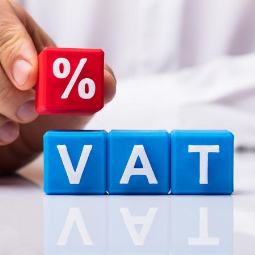 On July 1, 2020, an amendment to the Polish VAT Act entered into force, which implements a package of changes in EU law called the “Quick fixes” package, into the Polish legal system. The Amendment specifies new conditions for documenting EU deliveries, the settlement of chain transactions and the call-off stock procedure.
On July 1, 2020, an amendment to the Polish VAT Act entered into force, which implements a package of changes in EU law called the “Quick fixes” package, into the Polish legal system. The Amendment specifies new conditions for documenting EU deliveries, the settlement of chain transactions and the call-off stock procedure.
IMPLEMENTATION OF THE QUICK FIXES PACKAGE TO NATIONAL TAX REGULATIONS
On January 1, 2020, a package of changes to EU law in the field of VAT, called “Quick fixes”, entered into force. These were amendments to the existing EU VAT regulations, which were aimed at unifying and facilitating VAT settlements in EU countries, but at the same time introduced new rules for documenting EU transactions, which tightened the conditions for applying a zero VAT rate for intra- Community transactions. Amendments to EU law have been made in the form of an amendment to an EU directive that requires implementation into the national laws of the Member States, as well as an amendment to EU regulations that are directly applicable, without the need to amend national laws.
By December 31, 2019, individual EU Member States were required to implement the provisions of the EU directive introducing changes known as the “Quick Fixes” package into their national legal regulations, so that they would be applied from January 1, 2020.
At the end of 2019, the Polish Ministry of Finance announced that the relevant changes to the Polish VAT Act will not be ready from January 1, 2020. The Ministry assured that legislative work on the implementation of the directive is in progress, which results in an amendment to the act, effective from July 1. According to the Ministry of Finance announcement, during the transitional period, the taxpayer could apply the provisions of the EU directive or the national provisions of the VAT Act. Regardless of whether the taxpayer decides to apply the provisions of the directive or the provisions of the domestic VAT Act, he should do so consistently in all aspects related to the VAT settlement of a given transaction. The above transitional period was valid until June 30, 2020 and ended with the entry into force of the amendment to the Polish VAT Act, in force from July 1, 2020.
SCOPE OF QUICK FIXES
The “Quick fixes” package covers four areas of changes in EU law in the field of VAT:
1. Presumption of EU delivery (intra-Community supply of goods) and new, more stringent documentation requirements to demonstrate intra-Community supplies,
2. Requirements for VAT registration of the buyer for intra-Community transactions and new, more stringent EC sales list reporting requirements in the recapitulative statements (new condition for applying 0% rates for EU deliveries),
3. Uniform rules to simplify chain transactions in EU,
4. Simplifications in the functioning of consignment warehouses („call-off stock”).
NEW DOCUMENTS CONFIRMING EU DELIVERY (INTRACOMMUNITY SUPPLY OF GOODS)
Regulation (EU) No. 282/2011, amended since January 1, 2020, defines documents that are accepted as proof of delivery to another EU country (shipping or transport):
Category A – documents relating to the dispatch or transport of goods, such as:
- the signed CMR (Consignment Note),
- the bill of lading,
- invoice for air freight, or
- an invoice from the goods carrier.
Category B – other documents:
- insurance policy in respect of the dispatch or transport of goods,
- bank documents confirming payment for the shipment or transport of goods,
- official documents issued by a public authority, such as a notary, confirming the arrival of goods in the Member State of destination,
- an acknowledgment of receipt issued by the warehouse-keeper in the Member State of destination confirming the storage of the goods in that Member State.
The amendment to the Polish VAT Act does not introduce changes to the catalogue of documents required to confirm intra-Community delivery (essentially a sales invoice, goods specification and CMR document) in order to apply the 0% rate. The existing domestic regulations are still in force and it seems that meeting the conditions resulting from the Polish VAT Act will be sufficient to apply 0% VAT rate, and at the same time are not as demanding and strict as the provisions of the EU regulation.
PRESUMPTION OF EU DELIVERY AND REQUIRED DOCUMENTS
EU regulations presume that goods have been shipped or transported from a Member State to a destination outside its territory but within the Community. The tax authority will be able to rebut the above presumption if it proves that the goods have not been exported to another EU country.
Transport organized by the Seller. It is presumed that there has been an EU delivery if the goods have been:
1. dispatched or transported by the seller or a third party acting on his behalf, and
2. the seller is in possession at least:
- two non-contradictory category A evidence that was issued by two different parties which are independent of each other, the seller and the buyer, or
- the seller is in possession of any single evidence referred to in category A, together with any single non-contradictory evidence referred to in category B confirming the dispatch or transport that has been issued by two different parties which are independent of each other, from the seller and the buyer.
Transport organized by the Buyer. It is presumed that EU delivery (intracommunity supply of goods) has occurred if the seller is in possession of:
1. a written statement from the buyer confirming that the goods have been sent or transported by the buyer or by a third party acting on behalf of the buyer, and indicating the Member State of destination of the goods, and
2. at least two non-contradictory evidence referred to in category A which has been issued by two different parties which are independent of each other, the seller and the buyer, or any single evidence referred to in category A, together with any single non-contradictory evidence referred to in category B confirming transport or shipment which has been issued by two different parties which are independent of each other from seller and buyer.
Pursuant to the provisions of the regulation, the buyer’s written statement specifies: the date of issue; name or address and address of the buyer; quantity and type of goods; date and place of arrival of goods; in the case of delivery of means of transport, identification number of means of transport; and the identification of the person receiving the goods to the buyer.
The buyer shall provide the seller with a written statement by the tenth day of the month following the month in which delivery took place.
The amendment to the Polish VAT Act does not introduce changes to the catalogue of documents required to confirm intra-Community delivery (essentially a sales invoice, goods specification and CMR document) in order to apply the 0% rate. The existing domestic regulations are still in force and it seems that meeting the conditions resulting from the Polish VAT Act will be sufficient.
The provisions of the EU regulation will apply “alongside” the Polish VAT Act, i.e. they may be applied when the taxpayer does not meet national
requirements.
Comparing the current national regulations with the documentation requirements resulting from the EU regulation, it should be stated that the Polish regulations are more taxpayer-friendly and the documentation requirements are easier to fulfillment.
Nevertheless, in a situation where the taxpayer is able to obtain the documentation required by the provisions of the EU regulation, we recommend collecting the relevant documents.
BUYER’S VAT REGISTRATION AND REQUIREMENT TO SHOW EU DELIVERY IN THE RECAPITULATIVE STATEMENT (EC SALES LIST)
As part of the “Quick fixes” package, from January 1, 2020, EU Directive 2006/112 / EC introduced two additional material conditions for applying the 0% rate for EU delivery:
1. The buyer must be identified for VAT purposes in a Member State other than the country where the dispatch or transport of the goods begins and will provide the supplier with this VAT identification number,
2. The seller (taxpayer) shall show intra-Community delivery of goods in the recapitulative statement (EC sales list) submitted within the deadline and the recapitulative statement submitted will contain correct information regarding intra-Community supplies of goods, unless the taxpayer duly explains the deficiency in writing to the head of the tax office.
The amendment to the VAT Act, effective from 1 July 2020, to apply the 0% rateto intra-Community supply of goods, introduced the requirement for the buyer to have a valid EU VAT number issued by the tax administration in a country other than the country of dispatch.
Additionally, this number will have to be provided by the buyer. The amended regulations do not specify in what form it should be done. It seems that it will be sufficient to include the correct and valid VAT number of the buyer on the invoice.
Another condition for the application of the 0% rate in the intra-Community supply of goods is that the supplier submits correct summary information within the statutory deadline.
Pursuant to the amended VAT regulations, failure to submit summary information or submission of it with incorrect data results in the need to apply the VAT rate appropriate for a domestic delivery, unless the taxpayer duly explains the failure to the head of the tax office. For some taxpayers who have problems with the timely invoicing of EU supplies or often correct sales invoices (e.g. incorrectly defined buyer within the buyer’s capital group and the resulting change of the buyer on the invoice), the above requirement may have negative tax consequences (taxation of the delivery at the rate 23% instead of 0%).
CHAIN TRANSACTIONS WITHIN THE EU
The amendments to EU law within the framework of “Quick fixes” introduce from January 1, 2020 to Directive 2006/112 / EC simplification in the scope of settlement of chain transactions. For goods that are the subject of a chain transaction that is shipped or transported from the territory of one Member State to the territory of another Member State, the shipment or transport of these goods is only attributable to a delivery made to an intermediary.
However, where the intermediary has provided its supplier with VAT identification number for intra-Community transactions assigned to it by the Member State from which the goods are dispatched or transported, the dispatch or transport shall only be assigned to the supply of goods by the intermediary.
The intermediary entity referred to above means, other than the first in the chain, a supplier of goods who sends or transports the goods alone or through a third party acting on his behalf.
The provisions of the amended VAT Act introduced into Polish regulations the provisions resulting from the amendment of the EU directive. Pursuant to the new regulations, in the case of a chain transaction, the shipment or transport of goods is assigned only to the delivery made to the intermediary entity (organizing the transport). This supply is “mobile” and may be taxed at a rate of 0%.
However, if the intermediary entity is VAT registered in the country from which the goods are shipped and provides the supplier (the first in the chain) with its VAT number assigned to him by that country, then the first transaction will be taxed in the country of dispatch at the national rate, while the second at the 0% rate as intra-community delivery.
Provided that the intermediary entity is or will be registered for VAT in the country of dispatch, then it may each time decide to tax the transaction at the standard rate (if it provides a VAT number issued in the country of dispatch) or at the 0% rate (does not provide the VAT number issued in the country of dispatch).
The above rules do not apply to export transactions.
THE „CALL-OFF STOCK” ARRANGEMENTS
The changes introduced as part of the “Quick fixes” package simplify the rules for settling transactions carried out via “call-off stock” arrangements within the EU. EU regulations introduce uniform terms and conditions of operations for this type of arrangements, avoiding the obligation to register supplier of goods for VAT purpose in other EU countries.
The movement by a taxable person of goods to another Member State under a “call-off stock” arrangements is not considered to be a supply of goods. Such a transfer of goods from another EU country to the “call-off stock” warehouse in Poland is not subject to VAT as intra-Community acquisition of goods. The obligation to report intra-Community acquisition of goods is transferred to the buyer when the goods are released from the “call-off stock” warehouse. As a consequence, a supplier using the “call-off stock” arrangements will avoid both VAT registration, recognition of intra Community acquisition of goods in Poland, as well as settlement of local VAT on domestic sales.
The “call-off stock” arrangements can be used provided that the supplier knows the buyer of the goods when transporting goods to another EU country.
The EU regulation is directly applicable in Poland and does not require implementation into national legislation.
Compared to the regulations on consignment stocks currently in force in Poland, the new regulations shorten the period of storage of goods in a call-off stock warehouse from 24 to 12 months. At the same time, new regulations make it possible to cover goods also for commercial goods (currently Polish regulations regarding goods for production and service activities).
The amendment to the VAT Act, which entered into force on July 1, 2020, introduced into Polish regulations provisions consistent with the EU regulation. In addition, for taxpayers, including entities that directly applied the provisions of the EU regulation, from January 1, 2020, the legislator introduced the obligation to notify the tax office about running a warehouse used in the call-off stock procedure.
OTHER CHANGES
In addition to the implementation of the “Quick Fixes” package, the VAT Act amended from 1 July 2020 introduces additional changes.
Combined Nomenclature (CN). From July 1, 2020, the basis for identifying goods and services for the purpose of determining the correct VAT rate is:
- Nomenklatura Scalona (CN) in the field of goods, and
- Polish Classification of Goods and Services from 2015 in the field of services.
Binding tax rate information. From July 1, 2020, regulations regarding binding rate information (WIS) will enter into force. These are decisions containing, among others indication of the VAT rate appropriate for a given good or service. Binding rate information (WIS) is issued for the purposes of VAT on the supply of goods, the import of goods, intra-Community acquisitions of goods or the provision of services. The basis for identifying goods and services for the purposes of determining the VAT rate is the Combined Nomenclature (CN) for goods and PKWiU (Polish Qualification of Goods and Services) from 2015 in the field of services.
Import of goods in VAT return. Pursuant to the amendment, all active VAT taxpayers will be able to use the simplified procedure of accounting for VAT due on the import of goods. The simplified procedure allows the VAT due on the importation of goods to be accounted for (disclosed) in the VAT return submitted for the period in which the tax obligation on the import of these goods arose. This means that accounting for VAT on imported goods will be essentially cashless for taxpayers entitled to deduct input VAT – the taxpayer will disclose both output and input VAT in the VAT return, without the need to actually pay the amount of output VAT. Previously, such preferential accounting was available only to entities meeting the conditions for the use of simplified customs procedures specified in the EU Customs Code and the Authorized Economic Operators – mainly large companies. A taxpayer wishing to use the simplified procedure should meet the following conditions:
- present to the competent head of the customs and tax office a certificate of having no arrears in taxes and social contributions and a confirmation of registration as an active VAT taxpayer (these certificates may be replaced by statements of the taxpayer of the same content)
- make a customs declaration for imported goods through a direct or indirect representative within the meaning of customs regulations.
Taxpayers wishing to account for the VAT due on imported goods in the VAT return must use customs representatives. Only taxpayers who have the status of an Authorized Economic Operator within the meaning of Article 38 of the EU Customs Code or an authorization to use simplified customs procedures referred to in Articles 166 and 182 of the EU Customs Code shall be excluded from this obligation.
The amended regulations clarify which tax authority is competent in this respect. It is the Head of the Customs and Tax Office competent for the registered office or place of residence of the taxpayer, and in the case of taxpayers not having their registered office or place of residence in the territory of Poland – the Head of the Lower Silesian Customs and Tax Office in Wrocław.
Liquidation of VAT returns and the new JPK_VAT. From October 1, 2020, the VAT return will be liquidated. They will be replaced with a new, extended JPK VAT file. The obligation to submit return and records in the new JPK VAT format is effective from 1/10/2020 for all VAT payers.
![]()
We encourage you to read the full version of the alert and download the PDF.
In case of further questions regarding this alert, please contact our TPA experts directly.
 |
Partner |
 |
Associate Partner |
 |
Manager |
||
